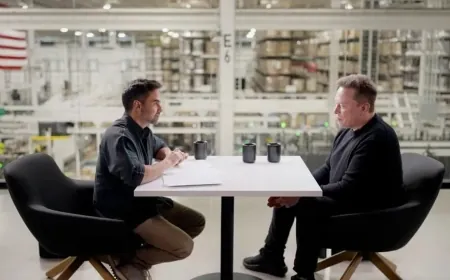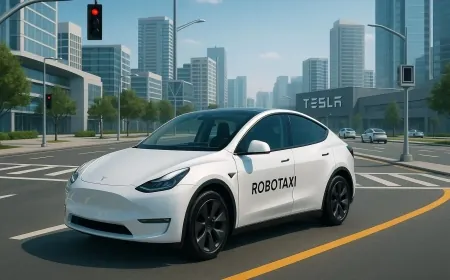Alexandr Wang Steps Down as Scale AI CEO After Meta Takes 49% Stake in $14.3 Billion Deal
Billionaire founder Alexandr Wang steps down as Scale AI CEO after Meta acquires 49% stake in $14.3B deal to boost its superintelligence efforts.

San Francisco — Alexandr Wang, the 28-year-old entrepreneur who co-founded Scale AI and became one of the youngest self-made billionaires in tech, has stepped down as CEO following a landmark $14.3 billion investment from Meta.
The deal gives Meta a 49% stake in Scale AI, a fast-growing artificial intelligence infrastructure company that works with major tech firms and government agencies. Scale’s valuation has now jumped to $29 billion, doubling from its last funding round.
Wang, who left MIT in 2016 to start the company, announced the move in a memo to employees on Thursday. He will join Meta to help lead its advanced AI development efforts while remaining on Scale’s board of directors.
I started this company right out of college, and it’s been the most rewarding experience of my life,” Wang wrote. “Now, I believe this is the right time — both for me and for Scale — to take on new roles and new challenges.
From Startup to AI Powerhouse
Scale AI began by helping companies label and manage data for machine learning models. As AI adoption grew across industries, the company evolved into a key supplier of tools for model training, safety evaluation, and deployment.
Its client list includes OpenAI, Microsoft, Google, Amazon, and several U.S. federal agencies — a rare position in a competitive and politically sensitive space. Scale’s ability to remain a neutral service provider has been central to its growth, though Meta’s investment may test that balance.
A company spokesperson confirmed that Wang will continue to advise Scale and that the company will continue operating independently of Meta.
Leadership Transition
Following Wang’s departure as CEO, Jason Droege, Scale’s chief strategy officer, has been appointed interim CEO. Droege joined Scale in 2024 after serving as a venture partner at Benchmark and as a senior executive at Uber.
According to internal sources, the board began planning the leadership transition shortly after Meta’s interest in a long-term partnership became serious earlier this year. Meta’s leadership reportedly wanted a closer relationship with Scale’s product and infrastructure team as it ramps up its AI programs.
Meta’s AI Push
Meta has made artificial intelligence its top priority for 2025, and this deal reinforces that commitment. The company is building a new research team focused on “superintelligence” — a term used to describe more advanced AI models beyond current large language models.
Wang’s role at Meta will involve building out that team and shaping the company’s future in foundation models, a field currently dominated by OpenAI and Google DeepMind.
He will also be bringing along a select group of Scale employees to join Meta, according to his memo. The names and roles of those team members have not been disclosed.
What This Means for Scale
While Meta now holds a significant stake, Scale AI will continue serving a wide range of clients in the public and private sectors. Investors familiar with the company believe its business will remain independent, though the Meta partnership may give it added resources to develop tools for high-compliance industries such as defense, healthcare, and finance.
Several analysts noted that this deal could open the door for Scale to eventually file for an IPO, depending on market conditions.
This isn’t an acquisition,” said one investor close to the deal. “It’s a way for Meta to lock in long-term infrastructure support, and for Scale to keep growing without being swallowed by one of its own customers.
A Founder's Journey
Wang started Scale at 19 with co-founder Lucy Guo, who left the company several years ago. Within five years, he became the world’s youngest self-made billionaire, thanks to early contracts in autonomous vehicles and later success supporting government AI programs.
He has consistently emphasized the value of building AI tools that are safe, fast, and accountable. In previous interviews, Wang has said that he benefited from having no preconceived ideas about how the AI industry “should” work.
“Not knowing the rules helped us write our own,” he told a podcast last year.
Now, Wang takes that mindset to Meta — and leaves behind a company he built from a dorm room idea into one of the most essential players in the AI economy.
Also Read: Meta Buys Into Scale AI — But OpenAI Refuses to Walk Away































































